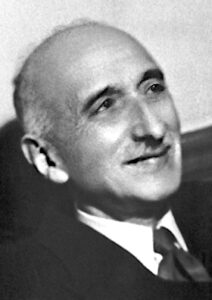The Viper’s Tangle, a novel by Francois Mauriac, was a favorite of Flannery O’Connor’s, which is why I wanted to read it. My hope that the novel would clarify O’Connor’s religious perspective and way of thinking was fulfilled.
(Spoilers follow.)

The main character of The Viper’s Tangle is Monsieur Louis, a 68-year-old man born a peasant who built a fortune and was a highly successful litigator. Louis is a Scrooge-like figure, obsessed with money, scornful of what he perceives as the empty piety of Christians, utterly without faith, consumed by various hatreds he has nursed for decades, mainly toward his wife and other members of his family. Louis believes himself to be terminally ill with a heart condition, and thinks (correctly) that his wife and children are plotting to get their mitts on his money. The novel is presented as a sort of deathbed confession Louis wants his wife to read after his passing.
Here it is in a nutshell. Louis holds nothing back as he traces his life history in his confession – hard on his family and hard on himself. With great perception he recognizes all the shortcomings in himself and those around him. He explains his revenge: a well-thought-out plan to prevent his wife and family from getting the great bulk of his estate. It is the desire for revenge, for the squaring of accounts, that drives him. He believes his wife has been completely indifferent toward him, and his two surviving children to be shallow, manipulative, and greedy. But Louis recognizes his own social awkwardness, unhandsome appearance, and aggressive attitude as contributing to his isolation, an understanding helps us see him as a character with some depth who perhaps deserves a degree of sympathy or at least pity. At any rate, as Louis methodically reflects on the significant events of his life and relationships, he slowly but surely achieves a profound change of heart. He comes to understand that his heart is not where his treasure is; that in fact, he wants love and to be loved, and that he needs an outside agency — a person — to save him from the choking viper’s tangle of his own heart. The implication is clear that he embraces Christ, and thus sees his family in a whole new light. Problems remain, vestiges of his old self survive, but the transformation is profound. The novel ends with this new Louis seeming to have a profoundly positive, perhaps soul-saving impact, on a most improbable young heir.
The story is about redemption and false piety. For the most part, Louis’s relatives are Pharisees, keeping all the appearances and practices of faith, but without repentant hearts. They are smugly confident of their righteousness, not only in religious matters, but in the conduct of their worldly lives. For most of his 68 years, Louis was very much the opposite: scornful of a faith that seemed nothing more than ritualistic formulations, and pursuing worldly success with eyes wide open to both the admirable and loathsome aspects of his decisions and conduct. In the end, Louis’s crystal-clear self-awareness and willingness to question, criticize, and rethink his own actions are enough to open his heart to God. God does the rest.
This is the same sort of story Flannery O’Connor tells over and over, but for me, Mauriac’s novel is easier to understand, more clear in what it is trying to convey about faith and salvation. It’s easy to understand why she admired him.
